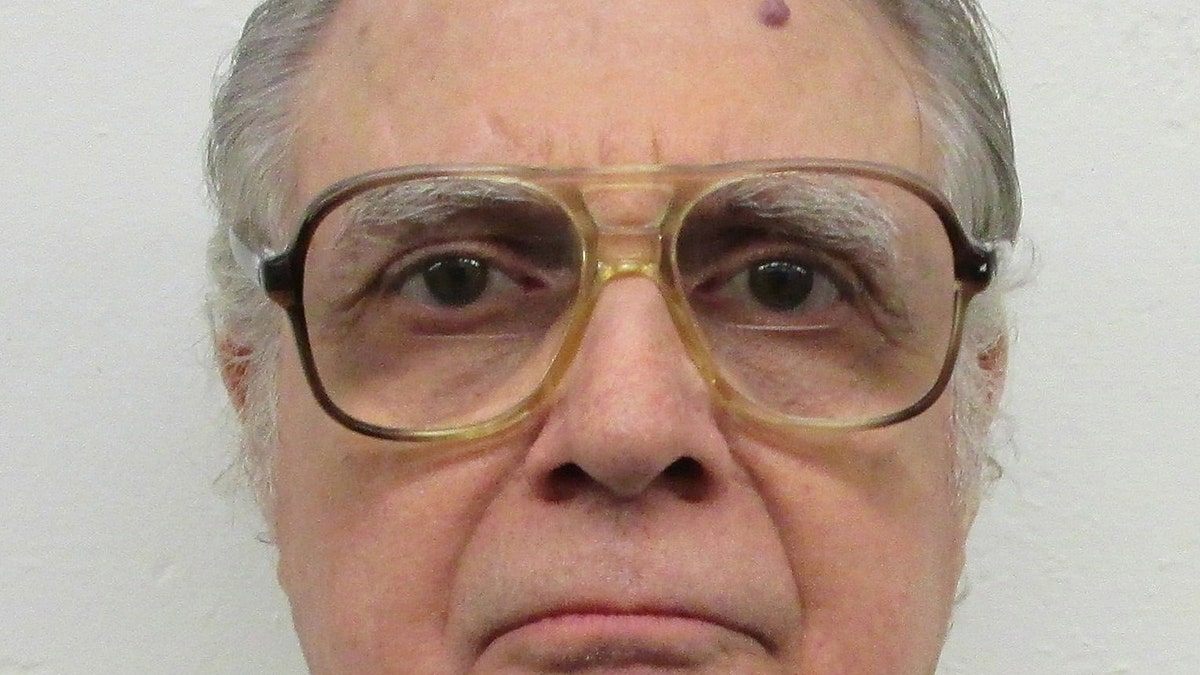
This undated photo released by the Alabama Department of Corrections shows death row inmate Tommy Arthur, who was convicted in the 1982 murder of Troy Wicker. (AP)
The U.S. Supreme Court ruled late Thursday that Alabama can proceed with the execution of Tommy Arthur, an inmate once nicknamed the "Houdini" of death row after having seven prior execution dates postponed.
Arthur, 75, was convicted in the 1982 murder-for-hire slaying of Troy Wicker.
Arthur's lawyers made multiple last-ditch appeals, both in and out of court, seeking to halt the execution originally scheduled for 6 p.m. CDT. The U.S. Supreme Court issued a temporary to consider Arthur's request. Justices, shortly before 11 p.m., paved the way for the execution to proceed. Justice Sonia Sotomayor criticized the decision in a dissent.
Arthur's lawyers argued that Alabama plans to use an ineffective sedative and Arthur will feel "the chemical equivalent of with a dissent from being burned at the stake." In a separate filing, they argued that his legal team should have access to a telephone in the witness room in the case the execution goes awry.
Speaking by telephone Monday from the south Alabama prison, Arthur maintained his innocence but acknowledged his hopes of gaining an eighth reprieve are diminishing. "I'm terrified, but there's nothing I can do. I've got hope in my legal team," Arthur told The Associated Press.
Arthur prior execution date reprieves — largely based on repeated challenges to the humaneness of lethal injection — frustrated victims' advocates, Wicker's family and the Alabama attorney general's office.
Alabama Attorney General Steve Marshall called Arthur's case an "egregious example of how a convicted murderer can manipulate the legal system to avoid justice."
Arthur maintained his innocence as his legal team and asked the state's governor to halt the execution to allow DNA testing on hairs found at the scene. Alabama Gov. Kay Ivey denied the request saying the matter how already been reviewed by juries and the courts.
"Neither a fingerprint nor a weapon, nor any other physical evidence connects Thomas Arthur to the murder of Troy Wicker," said Suhana Han, Arthur's lead lawyer.
The sprawling case began Feb. 1, 1982, when police responded to a call about a break-in and found riverboat engineer Troy Wicker slain in his bed in the north Alabama city of Muscle Shoals. Arthur was in a prison work-release program at the time for the 1977 slaying of his sister-in-law, a crime he admits to committing.
Wicker's wife Judy initially told police she came home and was raped by a black man who shot and killed her husband. She later changed her story and testified that she had discussed killing her husband with Arthur, who came to the house wearing an Afro-style wig and with his face painted with makeup, and shot her husband.
He was convicted in 1983, but that conviction was overturned. While awaiting retrial, he escaped jail in 1986 by shooting a guard in the neck. A second conviction followed and also was overturned, but a third conviction stuck.
Arthur asked jurors to give him the death penalty. The decision was strategic, he said, to open up more appellate review.
The state set seven execution dates for Arthur between 2001 and 2016. All were delayed as his legal team fought his sentence.
"He's a Houdini," said Janette Grantham, director of the Victims of Crime and Leniency. "He always finds a way to escape."
The many delays have been painful for Troy Wicker's family, Grantham said.
"If he does get executed and I hope and pray so — people might not think it's very good to pray for someone to die. But he is guilty. He killed more than one person," Grantham said.
In the stay request with the U.S. Supreme Court, Arthur's lawyers pointed to a December execution in Alabama in which inmate Ronald Bert Smith coughed for the first 13 minutes of his execution and moved slightly after two consciousness tests. Arthur's lawyers argued that showed Smith was awake during his execution. The state responded that there was no evidence Smith expe

